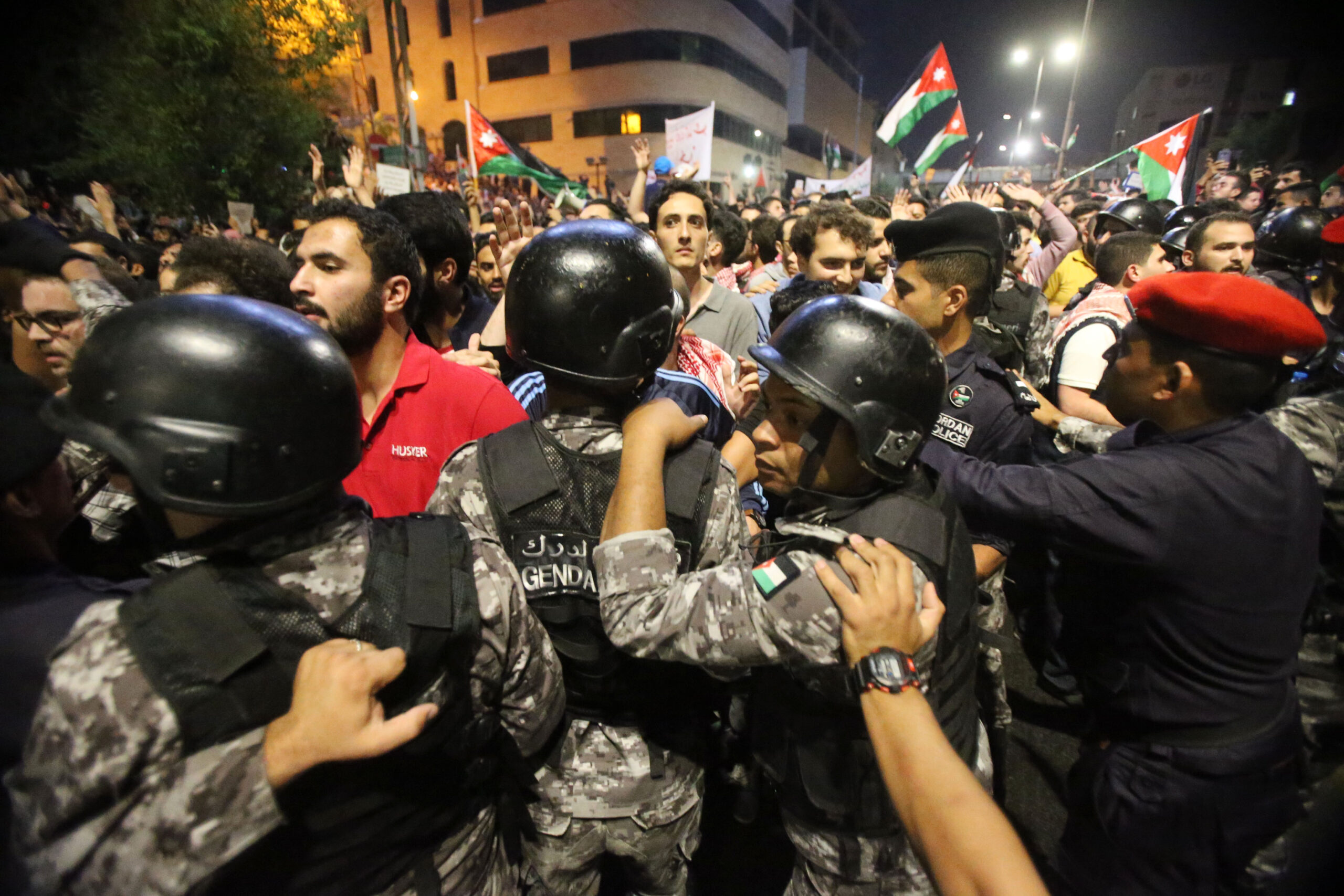Israel’s neighbors are greeting its war against Iran and its proxies in Gaza, Lebanon, Syria, and Yemen with silence instead of protests. The press, though, has forgotten all about “the Arab Street,” abandoning that moral litmus test now that it’s turning in Jerusalem’s favor.
On CNN Friday, an Iranian official warned that “any” countries defending Israel would “become new targets.” Yet Jordan began intercepting Iranian missiles and drones violating its airspace, saying they might crash — a concern they didn’t raise about attacks going the other direction.
When Jordan intercepted Iran’s missiles in April of last year, Israel’s former deputy ambassador to Egypt, Ruth Wasserman Lande, told Jewish Insider that Jordan couldn’t admit to the cooperation because of “anger on the street” but that it marked “a turning point in cooperation against Iran.”
On Friday, Al-Jazeera reported that Egypt and Libya had “detained or deported” activists flying in from outside the Arab world for the March to Gaza. On Wednesday, Israel had said it expected Egypt to stop the activists short of the border.
The New Arab reported on Friday that “Lebanese political and military officials had … ‘clearly and strongly’ told Hezbollah,” Iran’s catspaw, that Lebanon “would not allow a war with Israel,” and that they’d “given assurances to Arab and other regional countries” on the matter.
On Friday, Saudi Arabia offered “its strong condemnation and denunciation” of Israel’s attacks. But the Kingdom has been inching Israel’s way, again without a peep from the populace.
Saudi Arabia’s de-facto leader, Crown Prince Mohammed bin Salman, told “60 Minutes” in 2017 that he didn’t “want to see the same events” of Nazi Germany happen in the Mideast. He also repeated his assessment that Iran’s supreme leader, Ali Khamenei, is “the new Hitler.”
During America’s wars with Iraq, the Arab Street was used to motivate millions of people from 18 nations to be an opposition bloc. Yet in 2003, an MSNBC host, Ari Melber, wrote in the Baltimore Sun that the term was a “misleading cliché … inaccurate, disrespectful, and destructive.”
There “is no monolithic Arab Street, stewing with a singular hatred,” Mr. Melber said. In a 2009 speech at Cairo, President Obama tested the premise, saying he had arrived seeking “a new beginning between the United States and Muslims around the world.”
That overture misread the region’s mood. In 2011, during the Arab Spring uprising at Cairo, a CNN reporter, Nic Robertson, questioned several Egyptians. One man on the street, said the president “serves for his own purposes” and not theirs.
Another man interviewed said his “message to President Obama,” was “We started this revolution without any outside help, and we are going to finish it also without any outside help.” It turned out that the Arab Street had as many different opinions about politics as Main Street USA.
Vox wrote that “people expected ‘the Arab street’ to explode” when President Trump moved America’s embassy to Jerusalem in 2018. Instead, the reaction was muted, as it was after he recognized Israel’s claim to the Golan Heights in 2019.
The blowback was also absent when Mr. Trump negotiated the Abraham Accords in 2020. After Bahrain, Morocco, Sudan, and the UAE normalized relations with Israel, there was hope that Saudi Arabia would be next.
“Do I care personally about the Palestinian issue?” the Saudi crown prince asked Secretary of State Blinken, according to the Atlantic. “I don’t, but my people do.” It was a huge break with the past. Saying he might be killed if he didn’t heed public opinion, the crown prince made normalization conditional on establishing a Palestinian state.
Prince Mohammed said that his chief concern was preventing Iran from getting nuclear weapons because it would force the Kingdom to follow suit. The assessment demonstrated that Tehran’s goal of destroying the Jewish state is no longer a top concern for the region’s Muslims.
The Mideast has suffered for years at the hands of Iranian-backed terrorists and fears it would be a nuclear bully. People walking the Arab Street may not voice their preference for Israel, but those who trumpeted its angriest voices in the past can listen to what it’s saying now with its silence.
(Except for the headline, this story has not been edited by PostX News and is published from a syndicated feed.)

